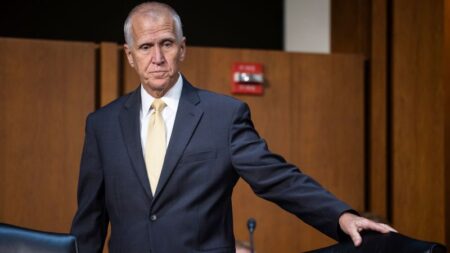### Diplomatic Dynamics between the US and Iran
In a recent interview with the BBC, Iran’s Deputy Foreign Minister, Majid Takht-Ravanchi, articulated the precondition for resuming diplomatic negotiations with the United States. He emphasized that the US must unequivocally commit to halting any further military strikes on Iranian interests if meaningful talks are to be revived. This statement comes in the backdrop of escalating tensions following a series of military operations involving both Iranian and Israeli forces.
Takht-Ravanchi elaborated that the Trump administration had signaled a willingness to return to negotiations through intermediaries; however, the specifics regarding ongoing military actions had yet to be clarified. This ambiguity poses a significant obstacle to potential dialogue. The context of this diplomatic impasse is marked by a recent military operation launched by Israel, which directly impacted the diplomatic landscape by disrupting a planned round of talks in Muscat, where discussions were expected to resume.
The situation intensified further when the US engaged directly in military actions against Iran, targeting critical nuclear sites. This aggressive stance significantly shifted the dynamics of the conflict, provoking a robust response from Iran, which retaliated with missile attacks on Israeli positions. The unfolding hostilities have resulted in a series of escalatory attacks over the past twelve days, with the US bombarding several Iranian nuclear facilities, including key sites at Fordo, Natanz, and Isfahan. The US presence in this military conflict has been a point of significant international scrutiny.
### Iran’s Nuclear Aspirations and International Tensions
In defending Iran’s right to enrich uranium for what it asserts are purely peaceful purposes, Takht-Ravanchi expressed strong disapproval of what he perceived as groundless accusations alleging Iran’s intentions to develop a nuclear arsenal. He stressed that Iran has been systematically denied access to the nuclear materials necessary for its research programs, compelling the country to independently seek solutions. The deputy foreign minister contended that any demands for an absolute cessation of uranium enrichment violate the principles of fair negotiation.
Iran’s military operations, initiated in response to perceived threats from Israel, have raised alarms regarding the nation’s proximity to developing nuclear weapons capabilities. Takht-Ravanchi pointed out that while ongoing military actions have severely disruptive effects, Iran remains committed to its nuclear program, stating its capacity to enrich uranium to a level initially stipulated under the 2015 nuclear accord—an agreement that limited Iran’s enrichment to 3.67% purity for peaceful civilian uses.
The US’s exit from the agreement in 2018 under President Trump, who argued that it inadequately addressed Iran’s potential path toward nuclear armament, has been a pivotal turning point. Following the US withdrawal and reinstated sanctions, Iran began extensive breaches of the accord’s restrictions, including the resumption of enrichment processes, steadily increasing its stockpile of enriched uranium.
### The Future of Diplomatic Engagement
As discussions of possible talks loom, Takht-Ravanchi noted that no definitive date has been earmarked for meeting with US officials, thereby leaving a vast uncertainty regarding potential negotiations. He raised critical concerns about whether acts of aggression might recur while diplomatic efforts were under way, stressing that clarity on this issue is essential.
In light of the mistrust evident between Iran and Western leaders regarding its nuclear ambitions, Takht-Ravanchi criticized European powers for their perceived complicity and lack of backbone in opposing US and Israeli aggression. He reiterated that criticism aimed at Iran’s nuclear endeavors should be contextualized within the framework of the treatment Iran has received from these nations.
On the broader geopolitical stage, the future of the ceasefire established between Iran and Israel remains tenuous. Takht-Ravanchi assured that Iran is committed to maintaining a ceasefire as long as it is not provoked, reflecting the fragile nature of peace in the region. Moreover, he acknowledged efforts made by regional allies, particularly Qatar, in facilitating a conducive atmosphere for dialogue.
In conclusion, the complex web of military conflict, nuclear ambitions, and diplomatic engagements continues to shape the interactions between Iran and the United States. The outcome of this dynamic hinges on both parties’ willingness to navigate their longstanding adversities towards a more stable interaction, which, given recent events, presents a daunting challenge.










